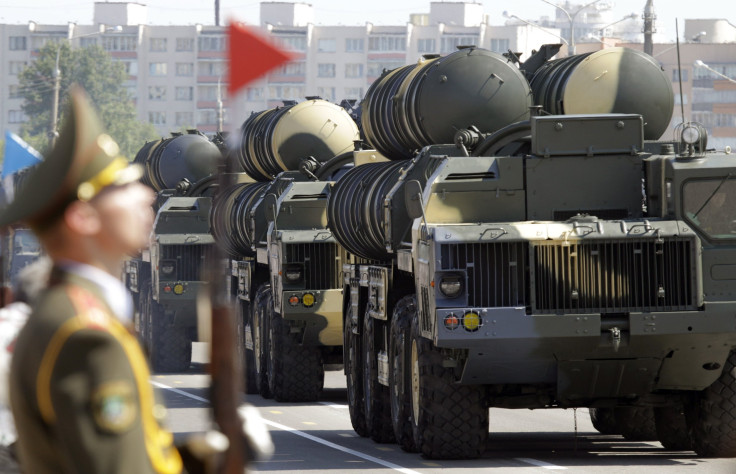Russian S-300 Missile System Sale To Iran: US Says Moscow’s Move Could Jeopardize Nuclear Deal

The United States has expressed concerns over Moscow's decision to lift a ban on supplying a sophisticated air-defense missile system to Iran, ahead of an expected final settlement between Tehran and six nations, including Russia, over a proposed nuclear deal, by the end of June.
U.S. Secretary of State John Kerry objected to Moscow’s move in a phone call with the Russian foreign minister, Sergey Lavrov, on Monday, the White House said, adding that Iran’s access to the Russian-made S-300 missile system could jeopardize plans to lift sanctions on Iran as part of a proposed deal concerning the Middle Eastern nation's nuclear program, the Associated Press (AP) reported.
White House spokesman Josh Earnest said that “coordination and unity” with nations like Russia is a significant factor in reaching an agreement with Iran, while a Pentagon spokesman criticized Moscow’s move as “unhelpful,” and said that concerns had been raised through the “appropriate diplomatic channels,” BBC reported.
While Tehran said that the delivery of the S-300 missile system would help establish "stability and security in the region,” Israel -- a vocal critic of the nuclear deal -- argued that Russia’s move is an indication of “the legitimacy that Iran obtained from the emerging nuclear deal,” BBC reported.
Russia had signed an $800 million contract with Iran in 2007 for the delivery of the missile system. However, the delivery was suspended three years later after strong protests from the U.S. and Israel. The S-300 missile system has a range of up to 125 miles, and is capable of tracking down and striking multiple targets simultaneously. However, Russia has argued that the S-300 is designed mainly for defense purposes.
“The S-300 is exclusively a defensive weapon, which can't serve offensive purposes and will not jeopardize the security of any country, including, of course, Israel,” AP quoted Lavrov as saying.
Russian officials previously said that the country had stopped producing the specific model of the S-300 mentioned in the 2007 contract, and offered Iran an upgraded version of the weapon, called S-300VM, or Antey-2500.
Although it is not clear when the missile system will be delivered to Iran, Dmitry Peskov, a spokesman for Russian President Vladimir Putin, said that the system could be shipped at any moment, AP reported.
© Copyright IBTimes 2024. All rights reserved.






















